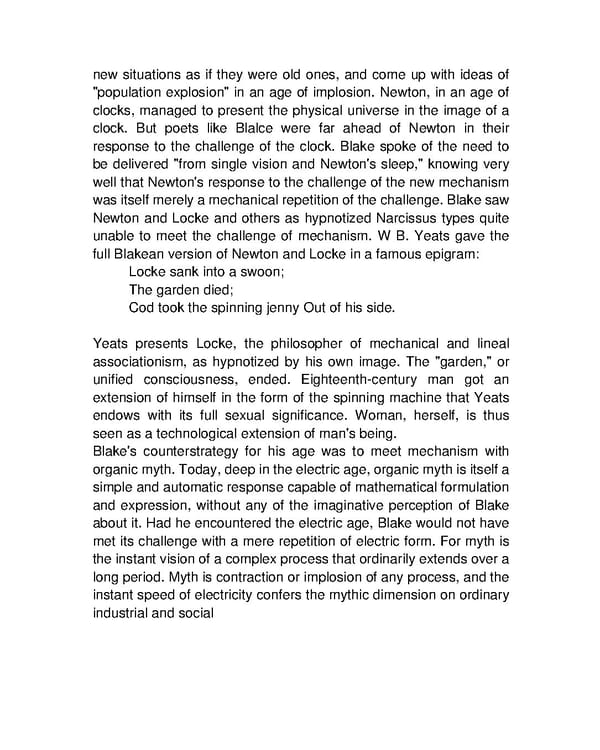new situations as if they were old ones, and come up with ideas of "population explosion" in an age of implosion. Newton, in an age of clocks, managed to present the physical universe in the image of a clock. But poets like Blalce were far ahead of Newton in their response to the challenge of the clock. Blake spoke of the need to be delivered "from single vision and Newton's sleep," knowing very well that Newton's response to the challenge of the new mechanism was itself merely a mechanical repetition of the challenge. Blake saw Newton and Locke and others as hypnotized Narcissus types quite unable to meet the challenge of mechanism. W B. Yeats gave the full Blakean version of Newton and Locke in a famous epigram: Locke sank into a swoon; The garden died; Cod took the spinning jenny Out of his side. Yeats presents Locke, the philosopher of mechanical and lineal associationism, as hypnotized by his own image. The "garden," or unified consciousness, ended. Eighteenth-century man got an extension of himself in the form of the spinning machine that Yeats endows with its full sexual significance. Woman, herself, is thus seen as a technological extension of man's being. Blake's counterstrategy for his age was to meet mechanism with organic myth. Today, deep in the electric age, organic myth is itself a simple and automatic response capable of mathematical formulation and expression, without any of the imaginative perception of Blake about it. Had he encountered the electric age, Blake would not have met its challenge with a mere repetition of electric form. For myth is the instant vision of a complex process that ordinarily extends over a long period. Myth is contraction or implosion of any process, and the instant speed of electricity confers the mythic dimension on ordinary industrial and social
 Understanding Media by Marshall McLuhan Page 32 Page 34
Understanding Media by Marshall McLuhan Page 32 Page 34